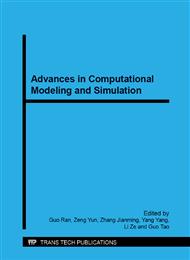p.1685
p.1690
p.1695
p.1702
p.1708
p.1713
p.1718
p.1726
p.1732
Simulation for Affect Factor of Curriculum Teaching System
Abstract:
Main affect factors of curriculum teaching system are teaching rhythm ratio and learning damping of students. However, the lacks of appropriate methods research the relationship between two main factors and expressed characteristics of curriculum teaching system. Based on built physical model of curriculum teaching system in this paper, and refer to course assessment grade which is main expressed characteristics of curriculum teaching, the model parameterization is done. Taking course assessment grade of a teaching class as case, the distribution of learning damping, teaching rhythm ratio, and both of comprehensive influence are simulated by means of Matlab software. Simulation results show that learning damping and teaching rhythm ratio nearly submit to the law of normal distribution, and distribution between learning damping and teaching rhythm ratio is saddle-type.
Info:
Periodical:
Pages:
1708-1712
Citation:
Online since:
October 2013
Price:
Сopyright:
© 2014 Trans Tech Publications Ltd. All Rights Reserved
Share:
Citation:


